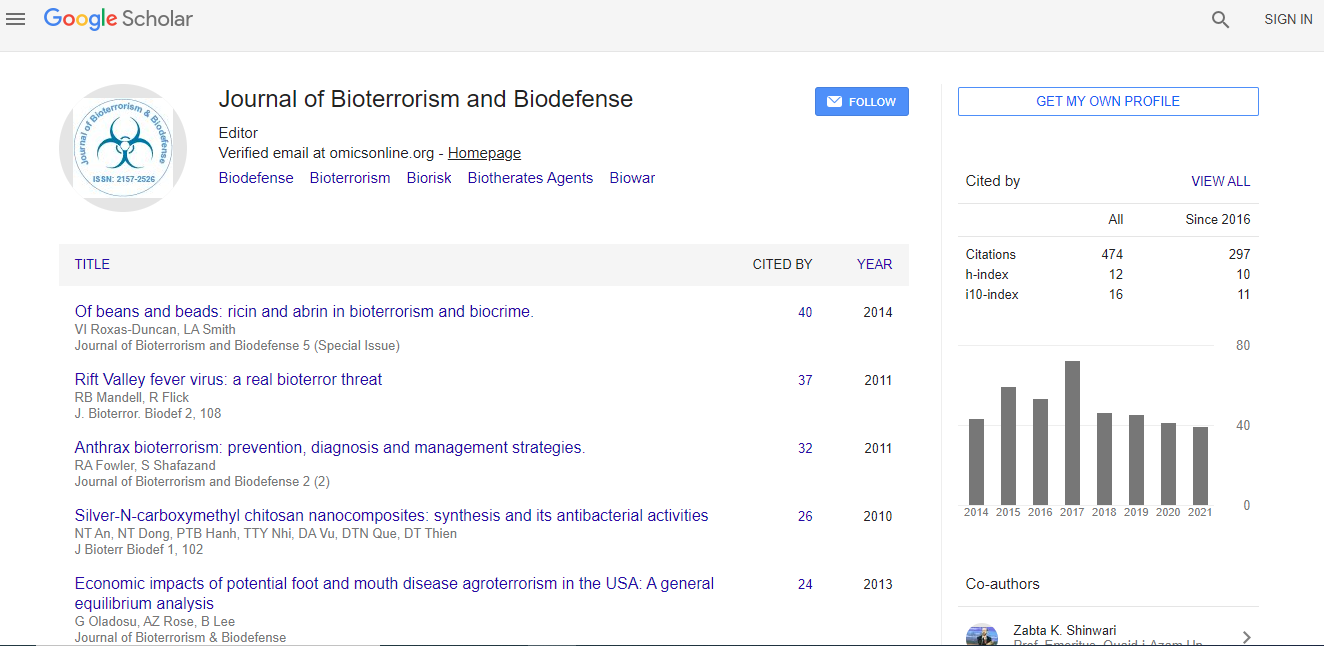Review Article
Vaccine Development for Biothreat Alphaviruses
Kevin B Spurgers and Pamela J Glass*
United States Army Medical Research Institute of Infectious Diseases, Frederick, MD 21702, USA
- *Corresponding Author:
- Pamela J Glass
United States Army Medical Research Institute of Infectious Diseases
1425 Porter Street,Fort Detrick, Frederick, Maryland 21702
Tel: 301-619-4742
E-mail: Pamela.glass@amedd.army.mil
Received Date: June 14, 2010; Accepted Date: July 13, 2011; Published Date: September 25, 2011
Citation: Spurgers KB, Glass PJ (2011) Vaccine Development for Biothreat Alpha viruses. J Bioterr Biodef S1:001. doi: 10.4172/2157-2526.S1-001
Copyright: © 2011 Spurgers KB, et al. This is an open-access article distributed under the terms of the Creative Commons Attribution License, which permits unrestricted use, distribution, and reproduction in any medium, provided the original author and source are credited.
Abstract
The majority of alphaviruses are non-pathogenic to humans. However, select alphaviruses can cause severe disease in humans during the course of naturally occurring epizootic outbreaks, or accidental infection of laboratory personnel. Natural infections occur through the bite of an infected mosquito. However, pathogenic alphaviruses, including Venezuelan, eastern, and western equine encephalitis viruses, have proven to be highly infectious via the aerosol route. Given this aerosol infectivity, ease of production of high-titer virus, and low infectious dose, these alphaviruses are recognized as candidates for use as biological weapons, and are classified as category B pathogens by the Centers for Disease Control and Prevention and The National Institutes of Health. There are currently no licensed vaccines to prevent alphavirus infections. Such a vaccine could protect geographically defined human populations during an epizootic, and enhance national security by serving as a deterrent to the use of these viruses as biological weapons. To address this critical need, several strategies are being pursued to develop safe, effective, and ultimately licensed vaccines for use in humans.

